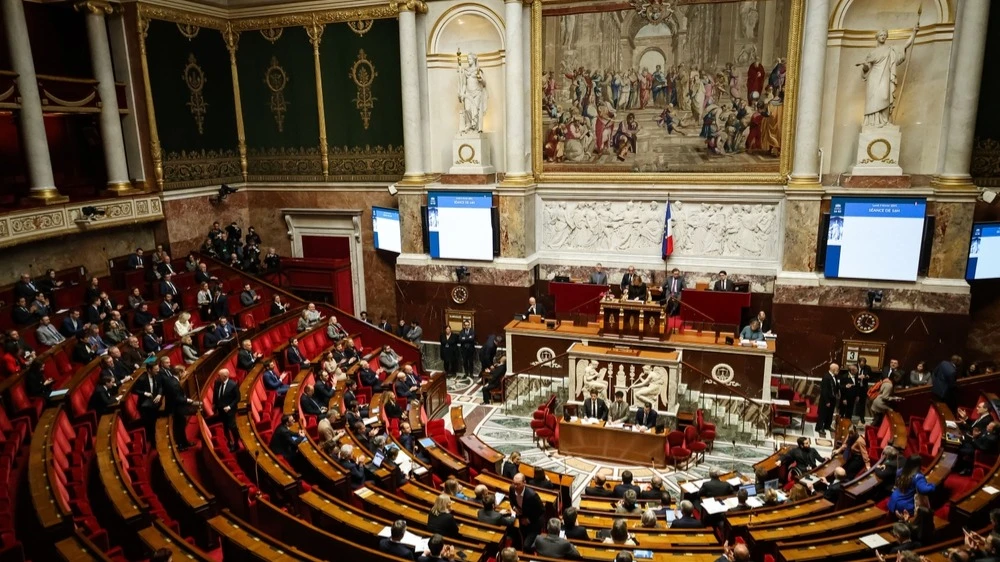France's prime minister avoided a vote of no confidence twice in one day. Is this good for the market?
There is no agreement on France's next government, neither in parliament nor in society

On October 16, the lower house of the French Parliament rejected two motions of no confidence in the government led by the reappointed Sebastien Lecornu. Investors in the French market took this positively, with stocks appreciating by almost 1%. But although Lecornu's second government has survived, it will not be able to rely on the parliamentary majority in the budget debate, one of the key topics on which the French parliament has been unable to reach an agreement with the cabinet for the second year.
Details
Deputies of the French National Assembly on Thursday voted on two initiatives of no confidence in the government - from the far-right "National Rally" of Marine Le Pen and the extreme left-wing party "Unconquered France" Jean-Luc Melanchon. A simple majority of 289 votes was required to dismiss the government. The parties demanding a vote of no confidence did not get that many, even taking into account the fact that they were joined by the Greens and Communists, RFI notes.
Had the vote of no confidence been supported by France's Socialist Party, Lecornuil's government would have fallen, repeating the fate of his predecessor François Bayrou's cabinet. However, Socialist MPs decided to support the government this time - after Lecornu promised to freeze one of President Emmanuel Macron's landmark reforms to raise the retirement age from 62 to 64, Bloomberg writes.
How the market reacted
Share index on the stock exchange in Paris CAC 40 rose at the auction on October 16 by about 1%, outperforming other leading European indices. Thus, the pan-European Stoxx 600 added about 0.3%, while the British FTSE 100 and German Dax declined within 0.2%.
Meanwhile, the difference between French and German 10-year bond yields - a key risk indicator - was little changed Thursday, according to data compiled by Bloomberg.
There was relief in markets as France has so far avoided the worst-case scenario of a dissolution of the National Assembly and new elections in the near term, ING lead investment strategist Vincent Juwan said in a Bloomberg note.
"The sword of Damocles still hangs over France and I expect markets to remain volatile," Juwan noted.
Context
Lecornuil's first government collapsed on October 6 after only 14 hours in office. But four days later, on October 10, Macron suddenly appointed Lecornu as prime minister for a second time, even though the latter had said he no longer wanted to lead the cabinet.
By Sunday, Lecornu had formed a second government, and on Tuesday he addressed parliament with a pledge to put pension reform on pause until the next presidential election. According to the BBC, this strengthened his position, with moderate Socialists saying they were not ready to vote for a vote of no confidence and influential center-right MPs saying it was not the time to change the cabinet when the annual budget had to be passed.
The collapse of the first Lecornu government led to the strongest collapse in French stocks since August 2025. The French stock market was then followed by the Stoxx 600, the FTSE 100 and the DAX.
What's next
The budget, state debt and pension reform remain the key topics on which the parliament cannot agree with the government for the second year. By Lecornu's own admission, his first and most important task is to pass the French budget for 2026 through the National Assembly, the BBC notes.
Since the increase in the retirement age has been put on pause, the budget will have to be brought together by cutting other expenditures - and this will not add to the prime minister's popularity. Every decision he will have to carry through parliament with difficulty, relying on ad hoc alliances with different factions, which is unlikely to increase the effectiveness of the second Lecornu government, the BBC predicts.
There is no unity about the new government in society either. A BFMTV poll showed that 56% of French people oppose any vote of no confidence, while 62% of readers of the conservative Le Figaro do not support the reappointment of Lecornu as prime minister.
This article was AI-translated and verified by a human editor
